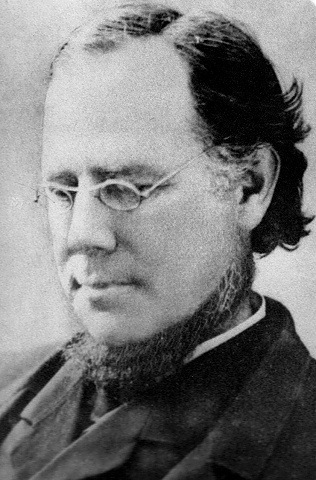December 5, 2012
This is the thirty-third in a series of previously unpublished reflections from the 1854 spiritual notebook of Paulist Founder, Servant of God Father Isaac T. Hecker. The reflection series is being made pubic in conjunction with Father Hecker’s cause for canonization. Father Paul Robichaud, CSP, Paulist historian and postulator for Father Hecker’s cause for sainthood, offers a response to Father Hecker’s reflection.

“If God sends you great suffering, it’s a sign that He would have you be a great saint, and if you wish God to make you a great saint, pray that he will give you great suffering.” – Attributed to St. Ignatius Loyola
Suffering is the surest evidence of God’s love for us and the most evident mark of a sublime vocation, because the effect of suffering is the destruction of our imperfection, and the measure of our suffering is the degree of our perfection. Patient suffering advances the soul more than valiant activity. The only action that impresses the angels and if it were possible, make them envious, is to suffer in silence, with patience, out of love for God.
At the base of our heart is the constant and secret speech of God to us: “suffer Me to love you.” These are affectionate tender words, enough even to melt our hearts into love. It is our God crucified who becomes the Spouse of our poor weak human soul. Nothing is more certain that God calls us to holiness when he sends us suffering, nothing is more certain that God will make each one of us holy if we are faithful to the invitations and inspirations of grace that he sends us. Sometimes our chief occupation is to suffer patiently. How can we ask God for a bed of roses when He was nailed to a cross. But just as there is pain and suffering so there is also joy and consolation. If we live by faith, hope and love what can we not suffer. After all the life of a true Christian is a copy of Our Lord’s life.

No member of the human race escapes the reality of suffering. Whether it is physical, emotional or spiritual, suffering is a part of the human condition. We can try to alleviate it, especially when it involves the poor and the weak. And it may seem a bit jarring to hear Servant of God Isaac Hecker write that suffering is the surest sign of God’s love for us. Yet no one escapes suffering. In fact attempting to escape from suffering can lead to denial, addiction and far worse consequences. So how as Christians do we make sense out of suffering? We go through that suffering knowing that Christ who has overcome all things goes through it with us.
In the Old Testament, suffering was understood as a punishment for one’s sin or the sins of the family. By the time of the exile from Jerusalem this had changed. While God punished Israel for not being faithful, God did not want to destroy his people, but move them to change their hearts through their suffering. The books of Job and Ecclesiastics raise the further question of how a good person who has done no wrong can suffer. Why would God allow this to happen? This led the prophets to a belief in an afterlife. God would allow the just to suffer in this life and be rewarded in the next life. The prophet Isaiah introduced a new understanding of suffering; that suffering tested one’s virtue and faithfulness and that it enabled one to suffer for others and atone for their sins found in his passages on the “Suffering Servant.”
The suffering of Christ forms the core of the Christian understanding. Christ the innocent lamb takes on the sin of the world in his suffering and redeems the world. Like Christ who suffered and in St. Paul on the Mystical Body of Christ, so the disciple suffers as well. The suffering of a Christian not only benefits oneself but in Mystical Body it benefits all. How do we make sense out of suffering? Just as suffering is a part of life, so suffering for the Christian is a challenge to live out faith, hope and love. When we do so, we suffer with Christ in whose wounds, the world is redeemed.
About Father Isaac Hecker’s 1854 Spiritual Notebook
Servant of God, Father Isaac Hecker wrote these spiritual notes as a young Redemptorist priest about 1854 and they have never been published. Hecker was 34 years old at the time, and had been ordained a priest for five years. He loved his work as a Catholic evangelist. The Redemptorist mission band had expanded out of the New York state area to the south and west, and the band’s national reputation grew. Hecker had begun to focus his attention on Protestants who came out to hear them. To this purpose Hecker began to write in 1854 his invitation to Protestant America to consider the Catholic Church, “Questions of the Soul” which would make him a national figure in the American church.
Hecker collected and organized these notes that include writings and stories from St. Alphonsus Liguori, the Jesuit spiritual writer Louis Lallemant and his disciple Jean Surin, the German mystic John Tauler, St. Thomas Aquinas and St. Jane de Chantal among others. These notes were a resource for retreat work and spiritual direction and show Hecker’s growing proficiency in traditional Catholic spirituality some ten years after his conversion to the Catholic faith. They are composed of short thematic reflections.
Father Paul Robichaud, CSP, is postulator for the Cause of Father Isaac Hecker for Sainthood. If you have asked for Father Hecker’s intercession and your prayer has been answered, please contact Father Robichaud at 202-269-2519.